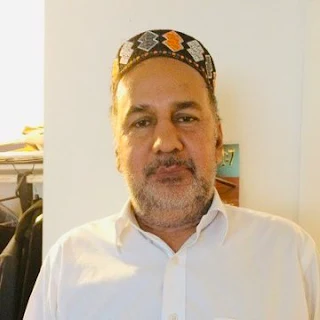Waz-zaakiriinallaaha kasiiraww-wa zaaakiraati ‘a-‘addallaahu lahum-maghfirataww-wa ‘ajran ‘aziimaa.
… men and women who remember Allah often—for (all of) them Allah has prepared forgiveness and a great reward. (Al-Ahzab 33 : 36)
Abu Huraira reported Allah’s Messenger (pbuh) as saying that Allah, the Exalted and Glorious, thus stated: “I am near to the thought of My servant as he thinks about Me, and I am with him as he remembers Me. And if he remembers Me in his heart, I also remember him in My Heart, and if he remembers Me in assembly I remember him in assembly, better than his (remembrance), and if he draws near Me by the span of a palm, I draw near him by the cubit, and if he draws near Me by the cubit I draw near him by the space (covered by) two hands. And if he walks towards Me, I rush towards him.”
 Alhamdulillah, Summa Alhamdulillah, Allah (swt) gave me the Tawfiq to continue my sermons on the subject of “Duahs” and today is the 8th part. All this is by the grace of Allah (swt) and His blessing and where He is pouring these duahs on me so that I can present them in front of all the brothers, sisters and children in Islam as well as all my dear disciples around the world. Ya Allah, Ya Azim, Ya Ghaffar, Ya Rabbul Aalameen (O Allah The Almighty, The Indulgent, The Master of all worlds), thank you for all Ilm (knowledge) that You pour out on me so that I lead Your servants on the right path. Ameen.
Alhamdulillah, Summa Alhamdulillah, Allah (swt) gave me the Tawfiq to continue my sermons on the subject of “Duahs” and today is the 8th part. All this is by the grace of Allah (swt) and His blessing and where He is pouring these duahs on me so that I can present them in front of all the brothers, sisters and children in Islam as well as all my dear disciples around the world. Ya Allah, Ya Azim, Ya Ghaffar, Ya Rabbul Aalameen (O Allah The Almighty, The Indulgent, The Master of all worlds), thank you for all Ilm (knowledge) that You pour out on me so that I lead Your servants on the right path. Ameen.
We pray that Allah (swt) will grant mercy, salvation and blessing to our prophet Muhammad (pbuh), as well as to his family and all of his companions. Ameen.
It is thanks to this great prophet Rahmatul-lil-Aalameen (who is a mercy to the whole universe) that we know these duahs. Allah taught us the duahs that His Nabi Kareem (pbuh) used to address to Him, and especially under what circumstances they should be recited. Prophet Muhammad (pbuh) himself is this perfect guide and model, and we have no guide except the Messenger of Allah (pbuh). [That is to say] It is from him that all people take example in order to perfect their own Islam and Iman (faith).





